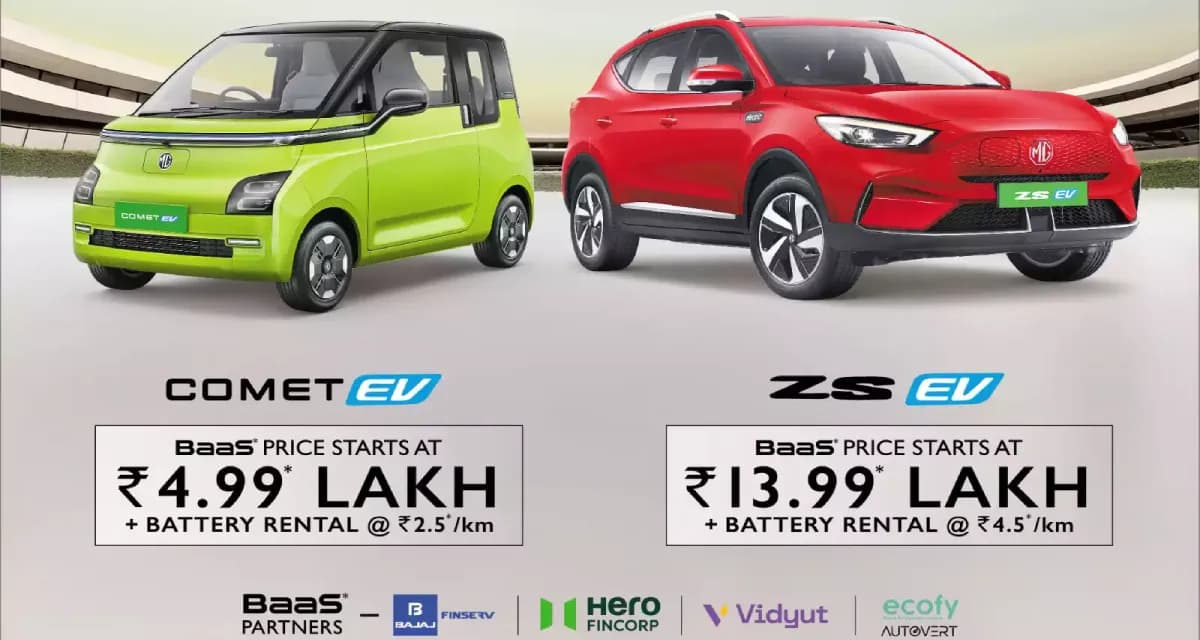MG Motor India has extended its innovative Battery as a Service (BaaS) program to two of its electric vehicles – the MG Comet EV and the MG ZS EV. This program allows customers to purchase these EVs at lower prices while renting the battery based on usage, making electric mobility more accessible.
MG Comet EV: Price and Battery Rental
Under the BaaS plan, the MG Comet EV is available at a starting price of Rs 4.99 lakh. Instead of purchasing the battery, customers can opt for a rental at Rs 2.5 per kilometer. This makes it an affordable entry point for those looking to own an electric vehicle without the higher upfront cost of the battery.
MG ZS EV: Price and Battery Rental
Similarly, the MG ZS EV is now offered at a reduced price of Rs 13.99 lakh, with a battery rental cost of Rs 4.5 per kilometer. This makes the higher-range ZS EV a more attractive option for those requiring longer distances on a single charge.
Buyback Assurance and EV Ownership Benefits
MG's BaaS program also provides a 60% assured buyback after three years, giving consumers an option to either return the vehicle or upgrade to a newer model. This buyback assurance is expected to increase consumer confidence in EV ownership.
Vehicle Ranges and Features
MG Comet EV: With a certified range of 230 km per charge, the Comet EV offers more than 55 i-SMART features, making it an ideal urban EV.
MG ZS EV: The ZS EV comes with a 50.3 kWh battery pack and a certified range of 461 km per charge, making it suitable for longer trips and frequent use.
Driving EV Adoption in India
The BaaS plan directly addresses one of the main barriers to EV adoption in India—the high initial cost. By lowering the entry price and offering flexible battery rental options, MG is making EVs more accessible to a broader range of consumers. This aligns with India's push for sustainable transportation and could significantly boost the country's shift toward electric mobility.
With financing options from partners like Bajaj Finserv, Hero Fincorp, Vidyut, and Ecofy Autovert, MG is also ensuring that a wider audience can afford EVs, potentially transforming electric vehicles into a mainstream choice for Indian consumers.
Also Read:
